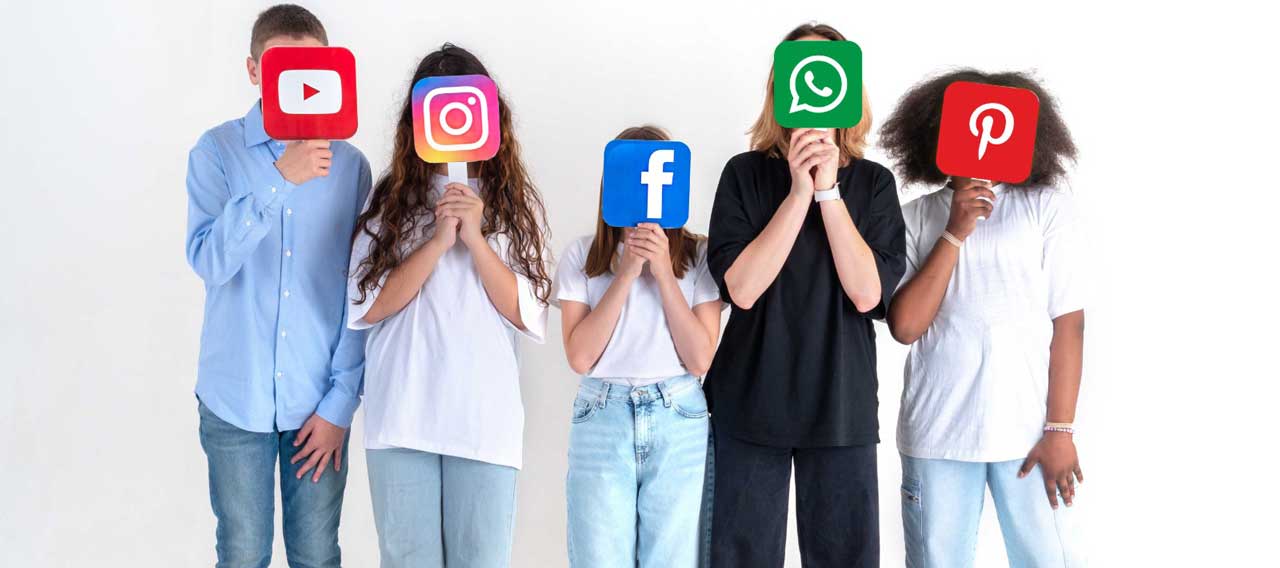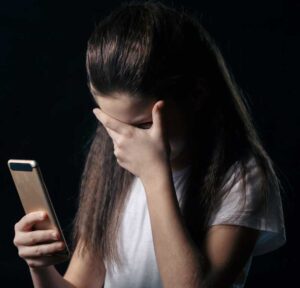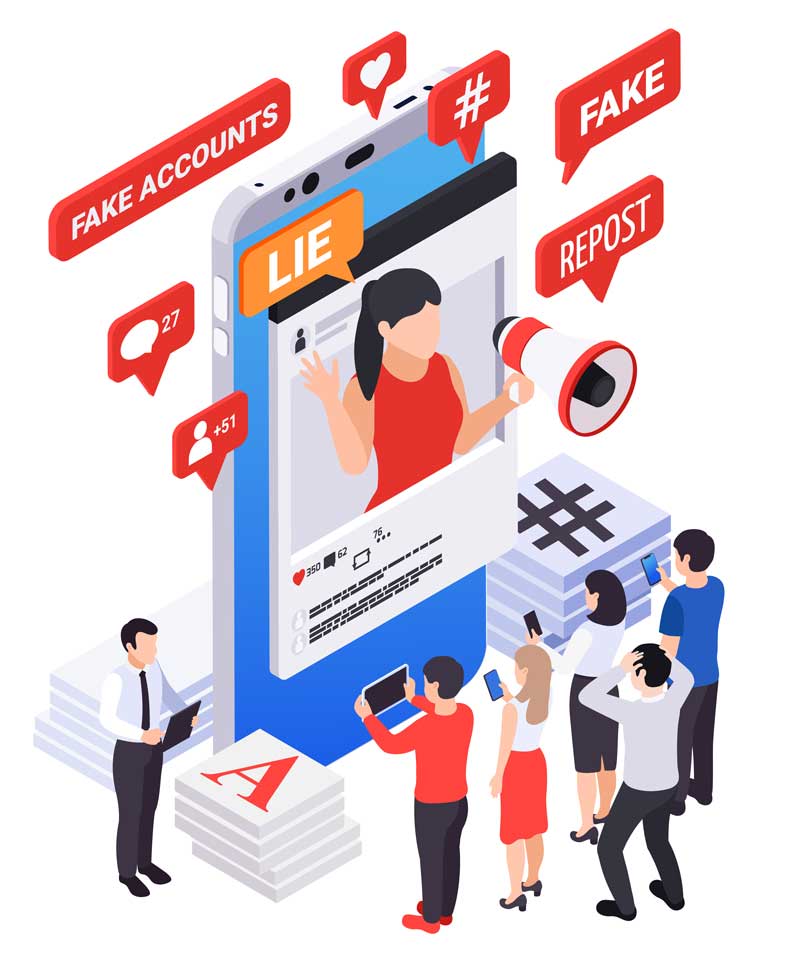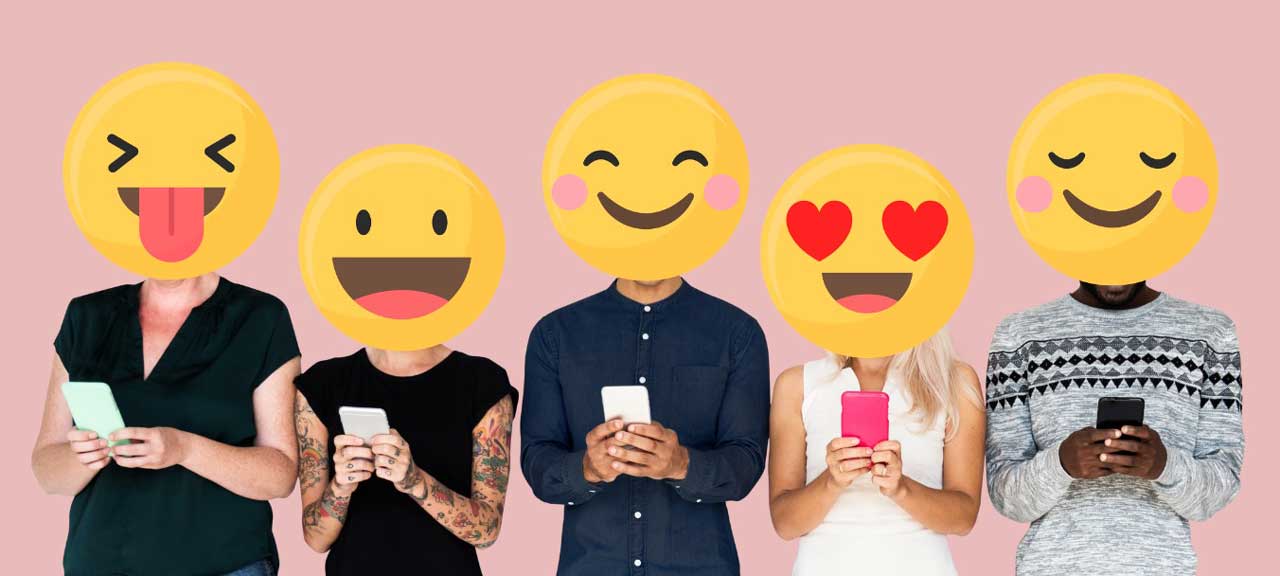
Social media has become an integral part of everyone’s daily life, there is no doubt that every kind of social media has a lot of usage. For example, they are helpful for communication, information sharing, social gathering, and interaction among our family and friends throughout the world. But it is also undeniable that the demerits of excessive use of social media are apparent in human civilization, with 1.95 billion daily active users on Facebook and Instagram combined, it’s not outrageous to say that we’ve reached peak social media. There are many reports that continue to shed light on the link between social media and feelings of loneliness, depression, jealousy, and anxiety.
Has it impacted our humanity negatively?
These reasons compel us to consider the possibility and say, “Perhaps yes.”
-
 Depression and Anxiety: Spending too long on social networking sites could adversely affect your mood. In fact, chronic social users are more likely to report poor mental health, including symptoms of anxiety and depression. The same research and our common sense also say the recommended amount of time one should spend on social networks is around half an hour per day.
Depression and Anxiety: Spending too long on social networking sites could adversely affect your mood. In fact, chronic social users are more likely to report poor mental health, including symptoms of anxiety and depression. The same research and our common sense also say the recommended amount of time one should spend on social networks is around half an hour per day.- Social Isolation: Paradoxically, excessive social media use can lead to social isolation as individuals may spend more time online and less time engaging in face-to-face and meaning full interactions with friends and family.
- Sleeping Issues & Productivity Loss: Late-night use of social media, often characterized by bright screens and stimulating content, can disrupt sleep patterns and lead to insomnia. Unregulated sleeping reduces productivity the next day which can affect work and personal responsibilities negatively, which in turn leads to stress and anxiety

- Misinformation and Fake News: The rapid spread of false information on social media platforms can contribute to the dissemination of misinformation and the polarization of society. The constant barrage of information, news, and opinions on social media can lead to information overload and digital fatigue, contributing to stress in one’s life.
- Unrealistic Expectations: As most people are probably aware, social media forms unrealistic expectations of life and friendships in our minds. Most social media sites have a severe lack of online authenticity. People use Snapchat to share their exciting adventures and load up their Instagram pages with heavily staged photos. While one looks great on the social media but that person could be in massive debt or desperate for Instagram likes as a form of validation.
Do your kids also spend several hours per day browsing through social media?
In today’s digital age, many kids exceed healthy limits when it comes to social media usage. If you’re a concerned parent in Hyderabad city, worried about your child’s behavior and well-being, you can turn to the Islaah Center for Psychological Wellness. Their team of professionals is dedicated to offering the support and guidance your child requires.You can get in touch with them through their website and contact numbers.https://islaahwellness.com/contact-us/ or 99083 55722 / 70755 16022
Factors behind the rise of social media:

- Connectivity: It is the foremost factor, as we are living in a globalized world many times young person of a family member goes to another state for the work or for the education, so in this situation social media is a good platform to stay connected with their love ones and to bridge the geographical gaps and create a sense of community among the friends and family members.
- Information and Learning: Another very important use of social media is learning and Information sharing. Social media is a vast source of information and knowledge. Youth can access news, educational content, and resources on various topics, aiding in their personal and academic growth.
- Self-Expression: Platforms like Instagram and YouTube allow youth to express themselves, showcase their talents, and share their creativity with the world.

- Support and Awareness: Many youth-oriented campaigns and movements find a voice on social media. It’s a space for raising awareness about social issues, mental health, and activism.
- Support Networks: Online communities and support groups provide a lifeline for individuals dealing with specific health issues or personal challenges.
Balancing Social Media with Mental Health
 Mental Health Awareness events must be organized by encouraging open discussions about mental health and its connection to social media. Promote strategies for managing stress and setting healthy boundaries. Encourage kids to have screen-free time for family interactions, outdoor activities, and other hobbies. Teach all the masses about the responsible use of social media use which includes privacy settings, online etiquette, and the importance of critical thinking when consuming online content.
Mental Health Awareness events must be organized by encouraging open discussions about mental health and its connection to social media. Promote strategies for managing stress and setting healthy boundaries. Encourage kids to have screen-free time for family interactions, outdoor activities, and other hobbies. Teach all the masses about the responsible use of social media use which includes privacy settings, online etiquette, and the importance of critical thinking when consuming online content.
In this digital age, it’s vital to balance social media and mental health through education and awareness. Teach responsible social media use and advocate for open discussions on mental health. Encourage stress management, setting boundaries, and offline activities.
Together, we can create a healthier digital world for all.
Written by: Mohd. Talib Khan
